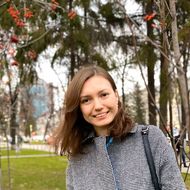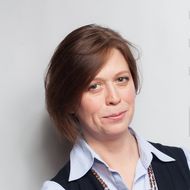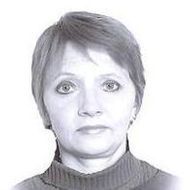В старых версиях браузеров сайт может отображаться некорректно. Для оптимальной работы с сайтом рекомендуем воспользоваться современным браузером.
✖
- A
- A
- A
- ABC
- ABC
- ABC
- А
- А
- А
- А
- А
Regular version of the site
ФКН
- HSE University
- Educational Departments
- Faculty of Humanities
- School of Philosophy and Cultural Studies
- Research Group "Philosophy of Science"
-
School
-
Research Groups
-
Educational Programmes
-
Conferences
Address: 21/4 Staraya Basmannaya Ultisa, building 1, room 414в
Phone: +7 495 772-95-90*22692
Email: aengovatova@hse.ru
Administration
School Head
–
Anastasia V. Ugleva
Deputy Head of the School
–
Daria Drozdova

Deputy Head of the School
–
Anna Vinkelman
Manager
–
Natalia Zakharova
Research Group "Philosophy of Science"
The research group in Philosophy of Science is aimed at studying a wide range of traditional and contemporary topical problems of the history and philosophy of science. Two thematic research fields have been selected as key ones for the coming years: (1) the methodology of interdisciplinary research and (2) the development of the theory of scientific rationality.
You can see the initial presentation of the group here (in Russian), and oral presentations by members of the group here (in Russian and in English).
The group has been created to carry out the following tasks:
- To connect scientific research in the field of philosophy to the latest achievements of concrete sciences, including traditional scientific disciplines as well as integrative ones (such as cognitive science, neuroscience, futures studies and foresight).
- To consolidate philosophers conducting their researches on the problems of philosophy of science, and to promote ties and cooperation with specialists in this field both in Russia and worldwide.
- To stimulate interest among undergraduate and graduate students in the problems of the philosophy of science, and to discuss term papers and graduate theses in the philosophy of science and related topics.
- The phenomenon of interdisciplinarity in modern science; the role of interdisciplinarity in the synthesis of scientific knowledge; the connection and differences between interdisciplinarity and transdisciplinarity; the peculiarities of interdisciplinary projects in natural science, social sciences and the humanities, and the emergence of a new evolutionary holism.
- The theory of scientific rationality; criteria for scientific rationality; the development of science as a change in types of scientific rationality; the distinctive features of scientific rationality in modern scientific research.
- Philosophy of physics: scientific realism and anti-realism; modal approaches in the interpretation of quantum mechanics; the problem of time and causality in physical theories; the nature of quantum information and its relationship with consciousness.
- The philosophical consideration of evolutionary and systemic theories and concepts in their history and current state, including universal (global) evolutionism, the concept of Big History, and the eco-evo-devo perspective.
- The impact of modern advances in neuroscience and cognitive science on problems of philosophy of mind; the discussion of modern approaches in the philosophy of mind, including embodied, extended, situated, and enactive cognition; the philosophical understanding of neuroperspective in various fields of philosophical and social knowledge (neuroethics, neuroaesthetics, neuropolitics, neuroeconomics, neurotheology, etc.).
- The philosophical analysis of modern trends in the digitalization of science and education; the possibilities and limits of the digitalization of the humanities.
- The humanistic understanding of modern scientific research; the ethical assessment of scientific projects; problems of bioethics and biomedical ethics.
Within the framework of the scientific research group, the following sections have been formed:
1) Section “Philosophical Problems of Physics” (Ivan A. Karpenko, Vladislav E. Terekhovich), with a monthly interfaculty research seminar.
2) Section “Indian Philosophy” (Natalia A. Kanaeva). The section's research focuses on the similarities and differences between the epistemic cultures of Europe and India. This section has been transformed into the Scientific educational group “Indian Philosophy: Past and Present”.
Head – Helena Knyazeva, Professor
Deputy Head – Ivan Kuzin, Lecturer
Anastasia Ugleva, Associate Professor, Head of the School of Philosophy and Cultural Studies.
Andrey Paramonov, Associate Professor
Alexey Pleshkov, Associate Professor, Director of Poletayev Institute for Theoretical and Historical Studies in the Humanities
Brian McLoone, Associate Professor
Daria Drozdova, Associate Professor
Ivan Karpenko, Associate Professor
Natalia Kanaeva, Associate Professor
Vladimir Porus, Full Professor
Vladislav Terekhovich, Associate Professor
Andrey Sevalnikov (associated member), Principal Researcher of the Institute of Philosophy RAS
- About
- About
- Key Figures & Facts
- Faculties & Departments
- International Partnerships
- Faculty & Staff
- HSE Buildings
- Public Enquiries
- Studies
- Admissions
- Programme Catalogue
- Undergraduate
- Graduate
- Exchange Programmes
- Summer University
- Summer Schools
- Semester in Moscow
- Business Internship
-
https://elearning.hse.ru/en/mooc/
Massive Open Online Courses
-
https://www.hse.ru/en/visual/
HSE Site for the Visually Impaired
-
http://5top100.com/
Russian Academic Excellence Project 5-100
- © HSE University 1993–2024 Contacts Copyright Privacy Policy Site Map
- Edit


